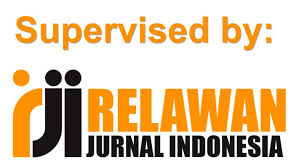Ingkung Tradition In Sriwangi Village, Tribe III District, Ogan Komering Ulu Timur Regency In The Perspective Of Socio-Culture, Aqidah, Philosophy And Islamic Law
DOI:
https://doi.org/10.37092/el-ghiroh.v23i1.1118Keywords:
Key word: ingkung tradition, cultureAbstract
The ingkung tradition is one of the very significant cultural heritages for the people of Sriwangi Village, Suku III District, East Ogan Komering Ulu Regency. Ingkung is not just a dish, but a ritual symbol that is full of profound meaning, both from a socio-cultural and religious perspective. This tradition serves as a symbol of cultural identity, a means to strengthen social relationships, and a way to get closer to Allah. Although it is still preserved, the challenge of modernization is an important concern that needs to be overcome so that this tradition can continue to thrive amidst changing times. The ingkung tradition has a rich depth of meaning and is in line with the principles of Islamic law. The local wisdom contained in this tradition can serve as a bridge to strengthen the cultural identity of the community without neglecting religious values. People can practice the ingkung tradition as a form of gratitude and togetherness, as well as a manifestation of obedience to religious law. The importance of intention in carrying out the ingkung tradition shows that every action must be based on awareness of a higher purpose. Furthermore, this tradition also provides space for people to maintain social relationships and strengthen solidarity among them. Thus, ingkung is not just food, but also a symbol of values that must be upheld in daily life. However, the challenges of modernization and social change need to be faced wisely. Efforts to preserve the ingkung tradition must be done actively, involving the younger generation in every implementation.
Downloads
References
Kuntowijoyo. (1997). Tradisi dan Identitas Sosial. Yogyakarta: Penerbit LKiS.
Ibn Khaldun. (2005). Muqaddimah: Prolegomena to History. Jakarta: Penerbit Serambi.
Geertz, C. (1973). The Interpretation of Cultures. Basic Books.
Al-Nawawi, Y. (1991), Al-Majmu’ Syarh Al-Muhadzdzab, Beirut: Dar Al-Fikr.
Al-Qardhawi, Y. (2001), Halal dan Haram dalam Islam, Jakarta: Pustaka Al-Kautsar.
MUI. (2019), Fatwa MUI tentang Halal dan Haram, Jakarta: Majelis Ulama Indonesia.
Umar, N. (2021), Hukum Islam Kontemporer dan Tantangannya, Jakarta: Rajawali Pers.
Al-Ghazali. (1997), Ihya Ulum al-Din, Jakarta: Pustaka Al-Kautsar.
Ibn Rushd. (2005), The Incoherence of the Incoherence, Chicago: University of Chicago Press.
Puslitbang Kehidupan Beragama. (2021), Laporan Penelitian tentang Tradisi Agama di Indonesia, Jakarta: Kementerian Agama RI.
Geertz, C. (1973), The Interpretation of Cultures, New York: Basic Books.
LP2M. (2022), Survei tentang Tradisi Budaya di Kalangan Generasi Muda, Yogyakarta: Lembaga Penelitian dan Pengabdian kepada Masyarakat.
Lukman, L., & Sopiyan, W. (2024). Contribution Of Contemporary Tasawuf As An Alternative Solution To Overcoming Religious Spiritual Drought. El-Ghiroh: Jurnal Studi Keislaman, 22(2), 209-219.
Sopiyan, W. (2024). Pengurangan Ketidakpastian Dalam Komunikasi Antar Budaya Pada Masyarakat Suku Anak Dalam Dengan Masyarakat Jawa Di Desa Q1 Tambah Asri Musi Rawas. Jurnal Khabar: Komunikasi dan Penyiaran Islam, 6(2), 157-174.
Downloads
Published
How to Cite
Issue
Section
License
Copyright (c) 2025 Lukman Lukman

This work is licensed under a Creative Commons Attribution-NonCommercial-ShareAlike 4.0 International License.










